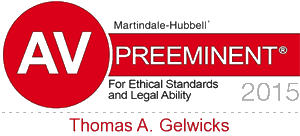As an evidentiary rule, res ipsa loquitur permits – but does not actually require – an inference of negligence. As a matter of law and of practicality, the doctrine of res ipsa loquitur is determined on a case-by-case basis.
To warrant the application of the res ipsa loquitur rule, the plaintiff must provide evidence in support of two conclusions. The first is that the instrumentality which caused the harm, at the time of the injury (or the creation of the condition) was under the exclusive management and control of the defendant. Secondly, it must be shown that the injury occurred under circumstances that “in the ordinary course of events” would not have have taken place if ordinary care had been observed.
No Ohio court is going to allow application of res ipsa loquitur if the facts are such that an inference can be drawn that the accident was due to a cause other than the defendant’s negligence.

